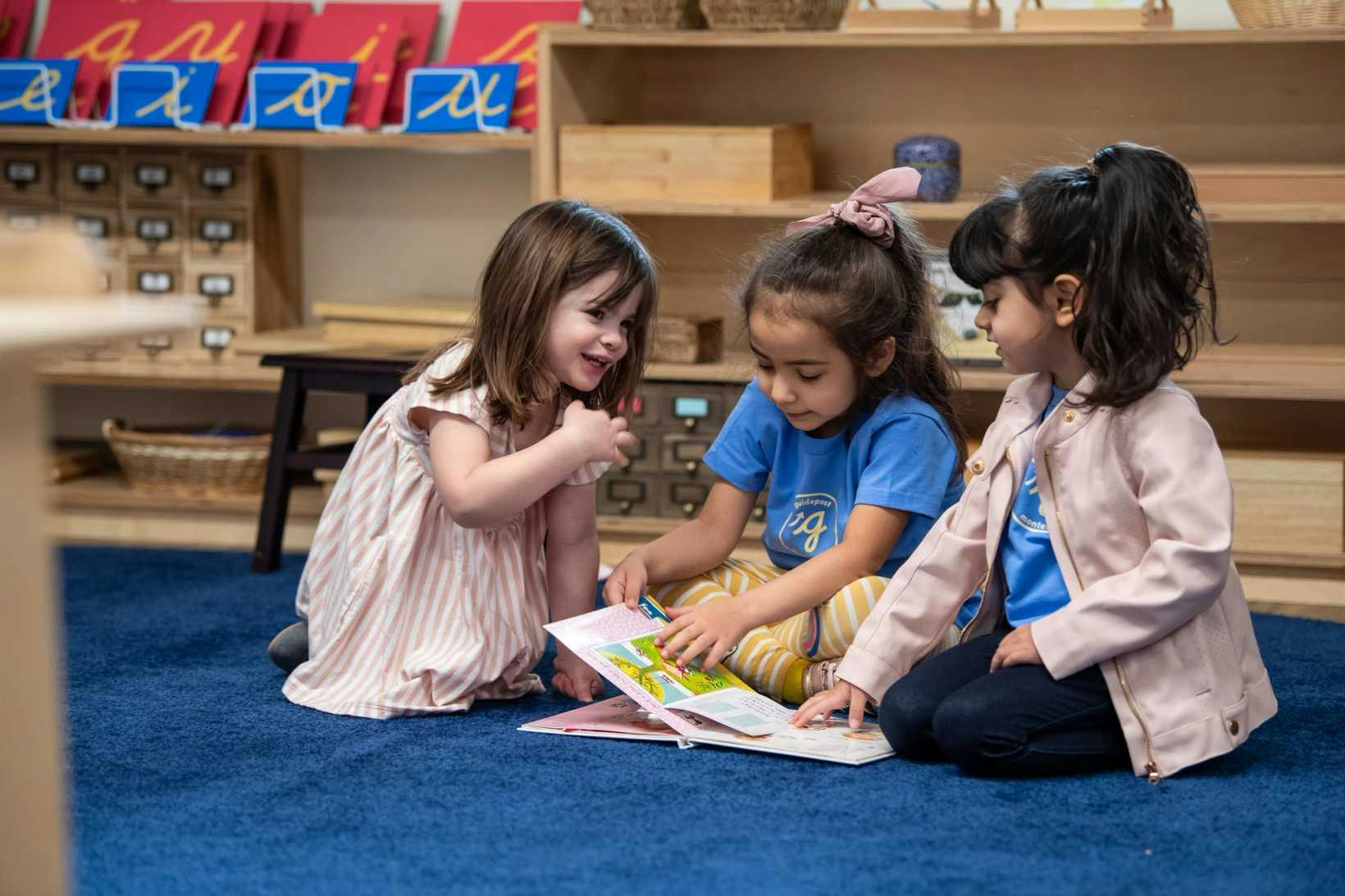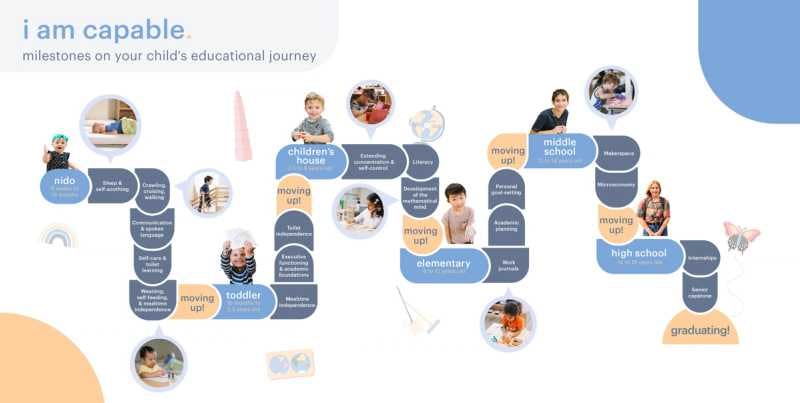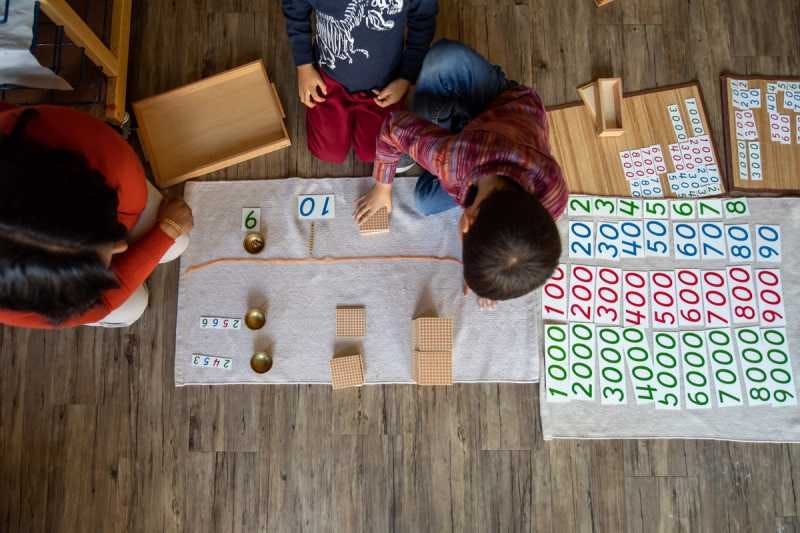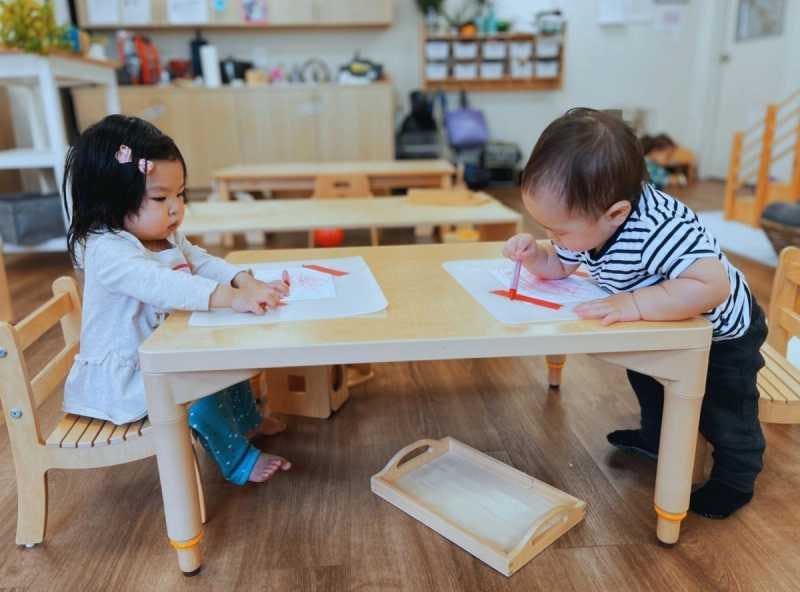The Difference Between Montessori and Daycare
Weighing up child care options? Learn about the differences between Montessori schools and daycare centers, so that you can select the best arrangement for your family
Continue ReadingSign up for our newsletter
Get started with our community today! Sign up for resources.
The Guidepost Approach to Developing Strong Readers (Who Love to Read!)
Guidepost Milestones: Developing Independent, Capable, Flourishing Children
Kindergarten at Guidepost
Essay by The Guidepost Team
Get to Know Guidepost Montessori: Our Programs, Our Community, Our Pedagogy
Fresh Off The Press
Montessori Early Literacy: How to Help Your Child Read with Confidence by Age 5
As a parent, one of the greatest gifts you can give your child is the ability to read. Literacy opens the door to imagination, confidence, and lifelong learning, but knowing where to start can feel overwhelming. The good news? You don’t need flashcards or worksheets. With a few simple, joyful routines at home, you can give your child the foundation for early writing and reading in a way that feels natural and stress-free.
Guidepost Global Education Partners with 2-Hour Learning to Launch NextGen Elementary
Guidepost Global Education has announced a partnership with 2-Hour Learning to bring two innovative elementary programs, Montessorium and Alpha, to select campuses this fall. The collaboration builds on Guidepost’s commitment to world-class early childhood education while offering families a seamless pathway from preschool through adolescence. By blending authentic Montessori foundations with cutting-edge, personalized learning tools, the partnership creates a powerful balance of tradition and innovation for today’s learners.
Potty Training Without the Power Struggle: A Guide for Home and School
Toilet learning is one of childhood’s biggest steps toward independence—and one of parenting’s biggest stress points. The good news? It does not have to be a daily battle. At Guidepost, we call it toilet learning because it is about more than just training a child to use the toilet. It is about helping them build confidence, autonomy, and trust in their own body. With clear routines, calm support, and consistency between home and school, the process becomes less overwhelming and far more empowering for your child.
Morning Routines for Kids: How to End the Daily Battles
Does your morning look something like this? You’re trying to get out the door, but your child refuses to get dressed. They’re melting down about which shoes to wear. They want to bring their giant stuffed animal to school. Meanwhile, the clock is ticking, and you’re already late for work. If this sounds familiar, you’re not alone. Mornings with toddlers and preschoolers can feel like the toughest part of the day. But there’s good news: resistance in the morning is not a sign that your child is “difficult” or that you’re doing something wrong. It’s a natural part of development—and with the right structures, mornings really can become calmer and smoother.
Walking Around the Sun: A Montessori Birthday That Truly Honors the Child
Why Your Toddler Melts Down (and What Actually Works)
A New Era for Montessori: Guidepost Global Education Unites 100+ Schools Across the U.S. and Asia
Montessori Starter Kit: 5 picks for Montessori at home
If you want to try Montessori at home, the first step is setting up your home with tools that foster greater independence for your child. These five items are all designed to give your little one increased independence at home (while still being safe!).
Preparing to read starts early.
Between birth and ~6 years old, young children are hardwired to easily learn and be fascinated by language. During these years, children are naturally inclined to learning about literacy. Here's how to make the most of this time so your child can learn to read effortlessly!
Checklist: What to look for in a Montessori School
Categories
Contributors
our montessori philosophy.
The Montessori approach to human development is based on the belief in the potential of the child, and on the belief that it is only the child who can realize this potential. To grow up well is to grow up to be increasingly independent—to be increasingly capable, increasingly confident, increasingly secure.



